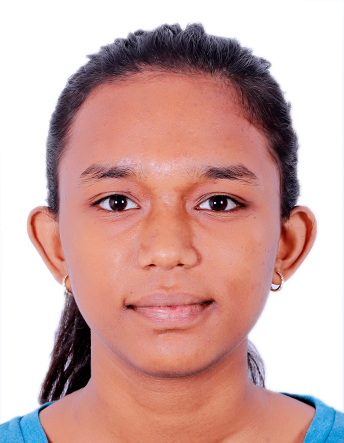- About the Country
- Student Life
- Admission Process
- Exams
- Cost of Living
- Visa
- Checklist Before Departure
- Post Study Options
New Zealand’s education system is world-class, modern and responsive. It combines proven, traditional principles with innovation, creativity and fresh thinking to produce leaders and citizens equipped for the 21st century.
Education in New Zealand is student-centred. It is focused on supporting students to problem-solve, process information, work with others, create and innovate. Students have the opportunity to develop their potential along a number of possible pathways, academic and/or vocational.
In New Zealand, higher education focuses on the individual, challenges to traditional ideas are welcomed, and a climate of healthy, open debate helps you make your own discoveries.
College Fit
At the higher education level, students have a wide range of options when they choose a college or university. Although there are agencies that attempt to rank colleges and universities, the concept of "fit" is also important. The GPA* of admitted students are important, but majors offered, location, number of students enrolled, and campus culture are all factors in a prospective student’s decision. Some colleges and universities are publicly funded, while others are privately supported.
*GPA means grade point average. It is the average of all grades received.
Popular student destinations: The top universities in New Zealand are University of Auckland, University of Otago, University of Canterbury, Victoria University of Wellington, and Massey University (in no particular order).
Auckland is the centre of all the renowned academic institutes. Most of the best colleges in the country are situated in cities like Wellington, Christchurch, Hamilton, and Napier-Hastings. About 7,459 Indian students were studying in New Zealand during the academic year 2012-13. Engineering, Business Studies, IT/Computing, Tourism & Hotel Management and Visual Communications are the popular courses Indian students pursue in New Zealand.
Safety in New Zealand
New Zealand has a low crime rate, few endemic diseases and a great healthcare system. It is a safe place for students, however, you should take some care with personal safety and possessions. Take copies of your important documents, like your passport and credit cards, and keep them separate from the originals. In an emergency, dial 111 for help.
Weather
Both the North and South Islands of New Zealand enjoy moderate, maritime climate and temperatures. The country is located in the southern hemisphere. This means summer starts in December and winter begins in June. New Zealand has moderately high rainfall and many hours of sunshine throughout most of the country.
Auckland –The Auckland region enjoys a warm, coastal climate without any extremes. Summers in Auckland are generally warm with high humidity, while winters are mild and damp as it rains a lot in winters. The average temperature in summers is around 24°C to 15°C; in winters it’s around 14°C to 9°C.
Wellington – This region has mild weather, temperate marine climate and is well known for being windy. The best weather in Wellington is during October to April. The average temperature in summers is around 20°C to 13°C; in winters it’s around 12°C to 6°C.
Christchurch – This region has temperate, bright and sunny days. The climate is relatively dry with lesser rainfall than other places in the country. Temperatures in summer are often moderated by cool sea breeze. Snowfall is usually expected once or twice a year. The average temperature in summer season is around 22°C to 12°C; in winter season is around 12°C to 3°C.
Queenstown – During winters, Queenstown has snow-capped mountains and bright, clear days while during the summers, days are warm and weather is pleasant. Weather is the main reason why Queenstown is a popular holiday destination at any time of the year. The average temperature in summers is around 22°C to 10°C; in winters it’s around 10°C to 1°C.
Lifestyle tips
Working hard and getting ahead is considered a virtue in New Zealand. NZ is a well-developed country which offers all sorts of opportunities to advance and broaden careers. Good life in New Zealand is about balancing a day’s hard work with socialising, spending time with your family and friends, and making the most of all the recreational activities. People enjoy the support of a great range of public services which includes developed transportation that makes getting around easier, and access to welfare support.
Indians living in New Zealand
There were nearly 104,583 Indian immigrants living in New Zealand in 2006. Almost one-third of all Indian immigrants resided in Auckland, representing the second-largest immigrant group by country of origin, after China.
Accommodation
Firstly, you need to decide whether you want to live in university managed accommodation, or with a private landlord. Choosing university managed accommodation can also give you a catered or self-catered option. Catered accommodation offers the benefits of your meals being cooked for you and a degree of certainty with meal costs.
If you have an idea about what you prefer, the accommodation office at your university will be able to tell you what accommodation they have available – so that’s the place to start. If you are thinking of renting from a private landlord or if your chosen university can’t offer you anything in its own residential facility, the accommodation office should be able to provide you a list of private properties and landlords in the area.
Wherever you choose to live, you should make sure that you know your contractual rights and responsibilities. In most cases, you will be asked to enter into a tenancy agreement, which you should read thoroughly before you sign.
Orientation
Orientation week is mandatory for international students so ensure that you arrive before it starts. This is the time where you will be introduced to the university and its services, as well as enroll in your classes. It is essential that you read your guidebook, which is provided by the college. The guide explains each part of the admission process.
Activities
Along with sport, colleges offer extra-curricular activities to offer students a wide range of experiences. Music, drama, science and literary societies are offered in all colleges, and there are opportunities for outdoor education and other leisure activities. Visits to theatres and concerts, to places relevant to the courses of study such as art galleries and museums, religious centres or historical sites, scientific companies and projects are all part of college life.
Requirements
These vary between study programs and levels. For each course, Indian students will need to meet a minimum English language requirement. Along with that a minimum academic record of 65% and above in Class XII will be required. Foundations and Diploma programmes are available for students who have secured below 60%. Students should have completed 18 years of age before joining a degree programme.
It is important to note that these numbers are just for reference purpose, the actual numbers may differ from university to university.
The following documents also need to be submitted:
- Attested copies of mark sheets of Class X, XII, and Bachelor’s degree (if applicable)
- At least, two academic reference letters from professors who have taught you most recently
- If you have work experience then two letters of recommendation from the employer/manager who know you well and can comment on your professional abilities
- Statement of Purpose
- Resume
- Photocopied score reports of GMAT / IELTS / TOEFL
- Portfolio (in case of students applying for art and design courses and architecture programmes)
- Others (Certificates / achievements at the state and national level and extracurricular activities)
- Proof of funds
Timeline
Most of the colleges in New Zealand accept online applications. You will have to visit each college's website to apply. In most cases, you will have to make an account on the college website to provide your basic information, submit the scanned version of your documents, and pay application fee. You will be informed about the application process and stages through this account. Please refer to the website of the colleges of your choice to know the process of applying.
Application fee
All colleges require that you pay an application fee while applying. The fee amount will differ depending upon the college and course being applied to, so check with individual colleges about their application fee.
Steps: The common steps to applying for admission are given here:
- Search for colleges and courses
- Contact schools and visit websites for information
- Narrow down your list of schools
- Take the entrance exams like GMAT, GRE, TOEFL, IELTS
- Write SOPs and ask for LORs
- Apply to the colleges which fit your interests
- Appear for video interviews for the colleges that shortlisted you
- If accepted, apply for student visa
SOP: A Statement of Purpose (SOP) is your introduction to the college and admission officers. It is always written in first person and describes the reason for applying to a particular college. It needs to highlight why you are a perfect fit for the college and why the college should accept you. The style of writing could differ from formal to casual, but it is important to remember that it should reflect your personality as well.
Essay: Essays are also required to be submitted by a prospective student. Essays are an important part of the university admissions process. Students may be required to write one or two essays, along with a few optional essays too. Common topics include career aspirations, strengths and weaknesses, skills, experiences, and reasons for considering a particular school.
LOR: A letter of recommendation (LOR) is a reference letter written by a third party describing the qualities, characteristics, and capabilities of the prospective student to recommend him to the college in terms of that individual’s ability to perform a particular task or function. The third party could be a professor, direct manager etc.
Intake seasons
New Zealand generally has two intakes i.e. January and July, with few universities offering multiple intakes in September and November. You should start your admission process around six months before the application deadline. Typically, most universities have three deadlines during one intake. It is up to the convenience of the students which deadline to aim for. You should be done with your language and aptitude tests by three months before the deadline. The last three months should be dedicated to filling out the application form properly.
It is essential to ensure that the 'complete application process' along with appearing for interviews and visa application process should be complete by Oct-Nov for the February intake.
If you are looking to get admission into vocational courses, then some courses may have admissions open even in March, April, May or July.
Language exams
International English Language Testing System (IELTS), Test of English as a Foreign Language (TOEFL) and Pearson Test of English (PTE) are all standardised language tests, which are required to be taken for the purpose of getting admission to colleges. These follow different formats, structure and result bands. These tests are all different in various ways but many colleges ask for any one of the results. So it's up to the student to decide which exam to appear for.
Repetition of exams
IELTS can be taken unlimited number of times. TOEFL can be retaken as many times as wished, but cannot be taken more than once in a 12-day period. It’s the same with PTE; it can be taken as many times as one wishes to. You must wait to receive your scores before you can book your next test.
Time to apply
Ideally, if you are aiming at the January intake you should appear for these exams by June, so that you can apply before the first deadline. The universities you will be applying to will mention which exam results they will accept. But if they give a choice to go for either of these, then the choice depends on you. The time required to prepare for IELTS/TOEFL/PTE would depend on the existing English language proficiency. You may require two to four months of preparation before the exam date.
General exams
GMAT – Graduate Management Admission Test (GMAT) is used to measure the abilities of the potential MBA aspirants to undertake higher education in the field of business or management. It measures mathematical, English, and reasoning skills of the candidates.
GRE – Graduate Record Examination (GRE) is another test required to be taken by students applying to graduate schools to pursue MA or MS. Increasingly, many business schools are also accepting GRE scores for the purpose to granting admission for MBA.
Repetition
You can give GMAT unlimited times, subject to five times a year and a gap of 30 days between two tests.
Average Scores
The average GMAT scores accepted across universities is 520. Average GRE score is 145 for Verbal, 160 for Quantitative and 4.0 for Writing.
It is important to note that these numbers are just for reference purpose, the actual numbers may differ from university to university.
The cost of living depends heavily on what part of New Zealand will you be living in, along with the how much you will socialise. Some of the basic elements for living as an international student in New Zealand are:
- Accommodation rent (on-campus or off-campus)
- Groceries and food
- Utilities like power, water, gas, internet
- Phone bills
- Text and reference books
- Airfare for traveling back to India
Other elements which may differ from person to person would be:
- Dinning out
- Travel and vacation
- Car rent and car insurance
- Cable TV connection
- School expenses
The tuition fee varies according to different universities, courses and the city. The tuition expenses in New Zealand might be up to NZ$ 10,000 to NZ$ 18,000 per year for an under-graduate course. And if you are thinking of applying for a post-graduate course, the cost would be approximately NZ$ 14,000 to NZ$ 24,000 per year.
Living expenses
With your application for a student visa, you must provide evidence that you have sufficient funds to support yourself throughout your stay in New Zealand. If your programme of study is longer than 36 weeks, you require NZ$ 15,000 for each year (40 weeks) of study. For a single student this would translate to approximately NZ$ 300-350 per week for general living expenses.
| Particulars | Cost |
| Pizza | NZ$ 16 |
| Milk (one litre) | NZ$ 2.4 |
| Coca Cola can | NZ$ 2.5 |
| Coffee | NZ$ 3.50–5 |
| Lunch from campus café | NZ$ 7–12 |
| Meal at a restaurant | NZ$ 15–40 |
| One minute cell phone call | NZ$ 0.6 |
| One way bus fare (depends on the distance) | NZ$ 0.50–10 |
| Monthly bus pass | NZ$ 123–240 |
| Movie ticket | NZ$ 15 |
| Doctor’s consultation fee | NZ$ 45–85 |
Health insurance
You are required to hold appropriate and current medical and travel insurance as a condition of your visa regardless of the length of your stay in New Zealand.
The New Zealand government’s “Code of Practice for the Pastoral Care of International Students” requires all international students to have health and travel insurance during their period of study. It is the university’s responsibility under the Code to ensure all enrolled international students have proper health and travel insurance policy for the duration of their student visa. Most of the times universities provide the health insurance to students and the cost is included in the first semester fee. Studentsafe is the most popular insurance provider in New Zealand.
Scholarships
Merit-based and need-based fee waivers are awarded to international students. Candidates with strong academics, good performance on standardised exams and extracurricular achievements would be eligible for scholarship awards and financial assistance. To benefit from these opportunities, one has to make sure to send all the required documents by particular deadlines. In addition to this, the presentation of the application is also important because one is judged by the image one projects.
Documents required
Here is a list of the documents usually needed for a scholarship application, although the requirements may differ:
- Academic records and photocopies
- A recent CV
- A letter of intent, which acts as a cover page
- Certificate of language proficiency (TOEFL or IELTS scores)
- Letters of Reference (LOR)
- Loans
Student eligibility criteria
The first thing is to be aware of whether you are eligible to apply for the loan or not. The general eligibility criteria that are followed by all the banks are:
- You should be an Indian national
- You must have a strong academic record
- You must be seeking admission to a professional, technical or other course of studies. Most banks maintain that the selected course should be job oriented
- You must have secured admission to a foreign university institution
- You must be above the age of 18 years or else your parents can avail the loan
Eligibility of course
You may not get a loan on every course. Here are the kinds of courses that qualify for the education loan.
For Graduation: Job oriented professional or technical courses offered by reputed universities
For Post-Graduation: MCA, MBA, MS or even diplomas
These courses could be from foreign universities or institutes approved by the state and central government
Loan amount
If your total fee is Rs 10 lakh, the bank may offer to give a loan of 80% of the amount and you will have to put in the balance 20%. This is called the margin amount. The maximum loan amount banks offer for studies abroad is generally around Rs 20 lakh. If your tuition fee amount is Rs 30 lakh, you’ll have to manage the rest of the funds by yourself. Some banks charge a processing fee, while others don’t. It may be a fixed amount or a percentage of the total loan amount. So if the bank charges you 1% as processing fee, that will be an additional cost you’ll have to cover.
Documentation required
You will have to provide the acceptance letter sent by the university reflecting that you have been selected for the course and the schedule of fees. You will also need to show the mark sheet of the last qualifying examination to show your academic record.
All banks have different requirements for documentation, so you need to confirm with the bank first.
Repayment
Repayment starts only after the course period. If the student gets employed within one year after completion of the course, the repayment should start immediately after the expiry of one month from the date of employment.
If you do not secure a job within a year of completing the course, then repayment starts irrespective of whether or not you are employed. The loan is generally to be repaid in 5-7 years after commencement of repayment. If the student is not able to complete the course within the scheduled time, extension of time for completion of course, he may be permitted for a maximum period of two years. Generally, you will get up to a maximum number of 10 years to repay the loan.
Conditions
If you want to attend a university or college in New Zealand you will need a student visa. Following documents will be required for the application purposes:
- Valid passport – Your passport must be valid for at least three months beyond your period of stay in New Zealand
- Completed Student Visa Application Form (INZ 1012)
- Application fee payment receipt, as you are required to pay Rs 11,100 before your interview
- Offer of place – You need to have an offer of place from a New Zealand institute/university. The forms are usually issued after the tuition fees have been received
- Letter from your current institution confirming status as a study abroad student
- Health insurance receipt
- You may be required to show Health and Character certificates, to prove that your intention of staying in New Zealand is genuine
- Two passport sized photographs
Note: Additional documentation may be required. During the personal interview, additional documents may be requested by the interviewer. These may be documents to prove evidence of academic or financial status.
- Transcripts, diplomas, degrees, or certificates from schools you attended
- Scores from tests that your college required, such as TOEFL, GRE, or GMAT
- How you will pay all educational, living and travel costs
Process
The average time taken by the New Zealand High Commission for the visa procedure is anywhere between 8 to 12 weeks depending on the individual’s background. So the students need to apply for their visas at least three months prior to their course commencement.
As an international student, you must complete your course within the minimum course duration listed on your acceptance letter. If you do not yet have a job offer, you may apply for a Post-study work visa. Visas granted are valid for up to 12 months and allow you to work in a temporary job while you look for a job in your field.
Work permit
You can work part-time for up to 20 hours per week if your programme of study meets one of these criteria:
- It is at least two years in duration
- It leads to a New Zealand qualification that qualifies for points towards an application for a Skilled Migrant visa.
- It is a tertiary institution, and the main purpose is to develop English language skills – you must also have an International English Language Testing System (IELTS) overall band score of 5.0 or above in the general or academic modules.
You may work full-time during all vacations if you are enrolled in a full-time programme of study of at least one academic year’s duration. If your full-time programme of study has a duration of at least eight months, and is a minimum of two semesters, but is less than 120 credits, you can work full-time over the Christmas and New Year holiday period.
Visa for spouse
In most cases, the spouse and dependent children of a student will be granted a visitor visa for the same duration as their partner or parents' stay. Spouses of student on Work Visa can work full time in NZ. However, the dependents of students on visitor visa have no work rights.
Pre-departure list
- Book airline tickets
- Arrange accommodation in New Zealand
- Arrange transportation to/from the airport to home in New Zealand
- Arrange your banking requirements – consider buying traveler’s cheques
- Check baggage and customs limitations
- Clear all paperwork with your home educational institution
Get your documents in order and make photocopies to store in your baggage and keep at home, including:
- Passport
- Airline tickets
- Travel insurance certificate
- Letter of Acceptance (LOR) by the educational institution
- Important addresses and phone numbers
- A bank statement showing proof of funds
- Prescriptions for any medication you are carrying
- Traveller’s cheques—if applicable
- Medical and immunisation records
- Academic history and university transcripts
Placements
Indian students are used to the concept of campus placements and on-campus recruitment for getting jobs. There is no concept of placements in New Zealand, like most other foreign countries. Most New Zealand universities have a cell called a Career Services Centre, which helps you get jobs and helps you prepare for interviews. The on-campus recruitment is always driven by student interest. Companies that recruit through the university do not offer a job directly. What they offer is an internship. Companies like to see your work for few months before they hire you full time.
Work Visa
If you are a student with an offer of employment relevant to your qualification, you may be eligible for a work visa for a maximum period of two years. You will need to provide evidence of the relevance of your job offer to your qualification, and the proof of successful completion of a qualification in New Zealand that meets the Study to Work qualification requirements.




















































































































